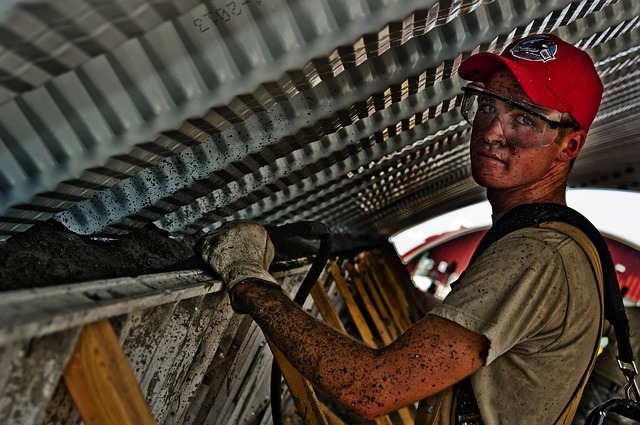Do you work in the construction industry? In this article we find out how to claim a CIS tax refund. Did you know, that almost 1/3 of UK construction workers pay too much tax which equates to an estimated £80 million lost each year. If you feel you’ve overpaid tax, it is time to take back what you’re owed. You can claim a CIS Tax Refund if, for the last four years, you have worked at 2 or more construction sites for the same company, and/or used public transport or your own vehicle to get to work. You could get an average of £2,500 from a 4-year refund. That is a good amount of money that you can spend on a lot of things.
Table of Contents
In this article, we look at how to claim a CIS Tax Refund
- What is the CIS Scheme?
- UK Tax Allowances for 2020-21 are as follows for these pay brackets
- Who qualifies for the CIS system?
- What if your business is outside the UK?
- How can you register for CIS?
- How do you offset expenses against your tax?
- What records do you need to keep to Claim a CIS Tax Refund?
- How do you claim your CIS tax refund?
- Apply for a CIS Tax Refund with taxback.co.uk
What is the CIS Scheme?
The Construction Industry Scheme (CIS) is where a construction contractor deducts, at source, a portion of the money due to their subcontractor. Whatever amount is deducted is then passed directly to HMRC which is then counted towards the tax and National Insurance of a subcontractor. This effectively pays the tax element in advance.
How much is deducted will depend on whether or not a subcontractor is registered under the CIS system? Unregistered subcontractors usually get a 30% deduction, while the registered ones get a deduction of 10% less or the standard rate of 20%. This is one of the reasons that, by the end of the financial year, the amount deducted at the source often ends up being overpaid. But a bigger reason is the fact that the deductions did not factor in the personal allowance that every taxpayer in the UK is entitled to. From £12,500, the personal allowance for the tax year 2019-2020 has not increased for 2020-21. Because of this overpayment, many subcontractors in the construction industry are due a tax refund.
UK Tax Allowances for 2020-21 are as follows for these pay brackets
| £0 – £12,500 | 0% (personal allowance) |
| £12,501 – £50,000 | 20% (basic rate) |
| £50,001 – £150,000 | 40% (higher rate) |
| Over £150,000 | 45% (additional rate) |
Getting the full benefits of CIS
Construction Workers Tax Refunds for 2020/21 Explained
The Best Trades Recruitment Companies

Who qualifies for the CIS system?
You are considered qualified for the CIS system if you are a subcontractor that supplies construction work to buildings, such as site preparation, labouring, decorating, and refurbishment. Some of the jobs exempt from the CIS scheme are scaffolding hire with no labour, architecture and surveying, carpet fitting, delivering materials, and non-construction work on a construction site, such as running a site facility.
You are considered a contractor for CIS purposes if you spend £1 million a year on construction within a three-year period. There are instances when a worker falls under the two categories and must follow the rules for both contractors and subcontractors.
What if your business is outside the UK?
Even if your business is outside the UK but you are subcontracting in the UK, you are still considered a subcontractor in the country and must follow the same rules as the local contractors/subcontractors. The only difference is when Double Taxation applies, especially if you are treated as a non-resident worker in the UK for tax purposes. The treaties that apply to you will dictate on whether or not you pay tax in the UK or where you’re domiciled.
How can you register for CIS?
Subcontractors are not obligated to register for the CIS system but they could suffer a higher deduction. So it makes sense to register. Make sure you prepare your National Insurance Number, your business’ unique taxpayer reference number, VAT registration number if you are VAT registered, and your legal business name or trading name, if they are different. If you’re both a subcontractor and a contractor, you need to register to CIS for both roles. Registration also applies to sole traders and overseas-based subcontractors that carry out construction work in the UK.
Do you want to register your business as a limited company or partnership? You still need to register as a sole trader, and then HMRC will register the partnership separately. There are instances when a subcontractor gets paid in full without deductions because of the gross payment status. When you register for CIS, you can apply for the same status, provided that you qualify and meet all of HMRC’s requirements, such as your turnover for the last 12 months and whether or not your business is run through a bank account.
How do you offset expenses against your tax?
Your tax refund can increase if you offset certain expenses against your subcontractor income. This means any tax outstanding will be reduced, resulting in a higher tax claim. Some of the allowable expenses include vehicle expenses, office costs, plant and equipment, clothing, insurance, and accounting fees. Most of the work-related expenses that are not declared prior to tax deduction can be offset. Just make sure you keep good records and receipts for all allowable expenses.
What records do you need to keep to Claim a CIS Tax Refund?
It is important that you keep proof of all your expenses and all amounts claimed back against your quarterly PAYE or monthly bill. You can keep your own records or use the form CIS132 found in GOV.UK. Make sure you keep a copy of your bank statement or download a copy of an electronic bank statement if you use an online banking account. You should also consider paying expenses and tools using a debit or credit card so that you will have a record of every transaction even if you lose the receipts.
How do you claim your CIS tax refund?
How you claim CIS tax refund will depend if you are registered in the CIS system as a sole trader and partner or a limited company. Sole traders and partners are required to send in Self Assessment tax return to HMRC. It must outline the full amounts on the invoices as income and, in the ‘CIS deductions’ field, any deductions a contractor has made should be indicated. The tax agency will then work out your tax and National Insurance bill and then subtract any deductions a contractor made. If you’re due a CIS tax refund, HMRC will pay you back.
Otherwise, you need to pay tax you owe by 31 January. For limited companies with a gross payment status, they need to complete a Corporation Tax return and declare all income. Any CIS deductions made will be paid back through the company’s monthly payroll scheme. They also need to send their full payment submission (FPS) and employer payment summary (EPS) before HMRC will take off CIS deductions from the PAYE tax and National Insurance.
Any unpaid CIS deductions from the PAYE bill can be carried forward to the next month or quarter in the same tax year. They just need to indicate in their EPS that they have nothing to pay to inform HMRC and that their PAYE bill for the period is zero.

Apply for a CIS Tax Refund with taxback.co.uk
At Taxback.co.uk we have a dedicated team who are ready to assist and answer your questions about CIS tax returns and refunds.
Get in touch today at info@taxback.co.uk or complete our CIS Tax Refunds form online.
Photo by Aleksey Malinovski on Unsplash

